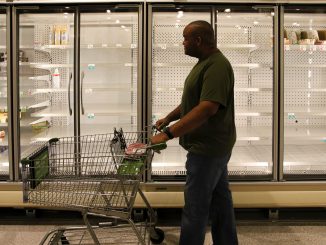We were dismayed but not surprised to learn that the number of Americans having trouble putting food on the table rose significantly last year.
The news comes from a recent U.S. Department of Agriculture report revealing that the percentage of households in America experiencing food insecurity rose more than than 2.6 percent in 2022. At a glance, the stats may not appear alarming. But, fact is, that’s a 25 percent jump in food insecure people in this country—from 10.2 to 12.8 percent—which equates to 10.2 million additional hungry Americans.
All told, 44.2 million U.S. citizens live in food-insecure households. Tragically, this includes more than 13 million children.
This surge in hunger follows a more than decade-long trend in the opposite direction; hunger decreased every year between 2012 and 2021. The recent reversal is concerning, to say the least, and it’s indicative of a lack of recent action from the highest reaches of government to address the issue.
Note that rates improved through the first two years of the pandemic, when Congress approved a series of “emergency” measures to combat poverty, such as boosting the allotment of Supplemental Nutrition Assistance Program (aka SNAP or food stamps) benefits.
However, Congress allowed those extra funds—an average of $82 a month—to expire early this year, leaving people to make do with pre-pandemic levels at the same time as skyrocketing food costs. In fact, prices shot up 11 percent from 2021 to 2022—stemming from inflation and supply chain disruptions—more than five times the historic average of 2 percent per year.
As a result, many Americans have had to choose between paying for food and other essentials, such as increasingly unaffordable housing.
That raises a couple of questions for our congressional representatives, including District 1 Rep. Doug LaMalfa: First, why in the world would you do away with such an important safety net at a time when Americans are facing housing and food crises? And second: What are you going to do about it?
That brings us to the Farm Bill, the massive multiyear legislation that was due to expire in September but was extended as lawmakers wrangle over the details. Per usual, Republicans want to increase certain farm subsidies—cotton, peanuts and rice (the commodity LaMalfa farms) this time around—mainly via cuts to food aid.
That’s their grand plan despite the fact that the aforementioned farming welfare would benefit only the nation’s wealthiest ag producers. Indeed, food out of the mouths of literal babes to line the pockets of fat cats.
Republicans hold the House and will argue that the pandemic is over and its emergency measures should end as well. But newsflash: 40-plus million hungry Americans is an emergency.
Suffice to say, it all puts a bad taste in our mouths, as it should yours. Hunger should not be a partisan issue.




Be the first to comment